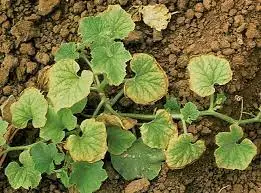
Molybdenum is one of the essential micronutrients that plays a vital role in plant health and growth, especially in tuber and root crops. Although plants require molybdenum in small quantities, its role in stimulating specific vital processes is crucial for achieving high yields and good crop quality.
What is Molybdenum?
Molybdenum is a rare heavy metal chemical element and is classified as a micronutrient, needed by plants only in very small amounts. It typically exists in the soil in the form of molybdenum oxide (MoO₃) or as Mo⁶⁺ ions that can be absorbed by plants.
Effects of Molybdenum on Tuber and Root Crops
Tuber and root crops, such as potatoes, carrots, turnips, and beets, rely significantly on biochemical reactions in the roots for their proper growth and tuber formation. Molybdenum is involved in several essential reactions that directly affect the growth of these plants.
Role in Nitrogen Fixation
One of the primary roles of molybdenum in plants is supporting the nitrogen fixation process. In root crops like beans and chickpeas, molybdenum aids in the formation of enzymes necessary for transferring nitrogen from the atmosphere to the roots, where they synthesize nitrogenous compounds needed by the plant. In tuber crops like potatoes, molybdenum is crucial for enhancing the plant’s ability to utilize nitrogen in the soil, thus promoting growth and development.
Example: In some crops like legumes, molybdenum is associated with specialized nitrogen-fixing root bacteria, such as Rhizobia, helping convert atmospheric nitrogen into compounds usable by the plant.
Stimulating the Production of Important Enzymes
Molybdenum also participates in stimulating the production of key enzymes such as nitrate reductase and nitrate dehydrogenase. These enzymes are essential for converting nitrates into ammonia in plants, a fundamental process for synthesizing amino acids and proteins, which enhances overall crop growth. In root crops like carrots, these processes contribute to improving the overall quality of the crop and increasing its nutritional content.
Assisting in Nutrient Absorption and Distribution
Molybdenum improves the plant’s ability to absorb other nutrients, particularly phosphorus. This element indirectly enhances phosphorus utilization efficiency in the soil, which is crucial for stimulating root growth and tuber formation in root and tuber crops.
Increasing Disease Resistance
Studies have shown that molybdenum may play a role in improving plant resistance to certain fungal and bacterial diseases. In root and tuber crops, molybdenum can help strengthen the plant’s immune system, making it more resistant to diseases affecting the roots or tubers, such as root rot and fungi attacking potatoes.
Importance of Molybdenum in Enhancing Productivity
Molybdenum is a key factor in increasing the productivity of tuber and root crops, as its deficiency leads to poor plant growth and reduced yield. A lack of molybdenum can result in stunted growth and reduced productivity, especially in crops that heavily rely on nitrogen, such as potatoes and carrots.
By adding molybdenum to the soil, either through fertilizers or naturally using organic compounds, nitrogen absorption efficiency from the atmosphere and soil can be improved, thereby enhancing plant health and increasing productivity.
How to Add Molybdenum to the Soil
Molybdenum can be added to the soil using fertilizers containing this element, such as “molybdenum sulfate” or “ammonium molybdate.” These fertilizers are typically applied through irrigation or mixed with the soil before planting. It is important to determine the appropriate doses since excess molybdenum can have negative effects on plants.
Conclusion
Molybdenum is a vital element for the growth of tuber and root crops, aiding in nitrogen fixation, stimulating enzyme production, improving nutrient absorption, and increasing plant disease resistance. By effectively utilizing this element, agricultural productivity can be enhanced, and crop health maintained. However, it is essential to monitor molybdenum levels in the soil to avoid overapplication or deficiencies that could adversely affect plant health.


